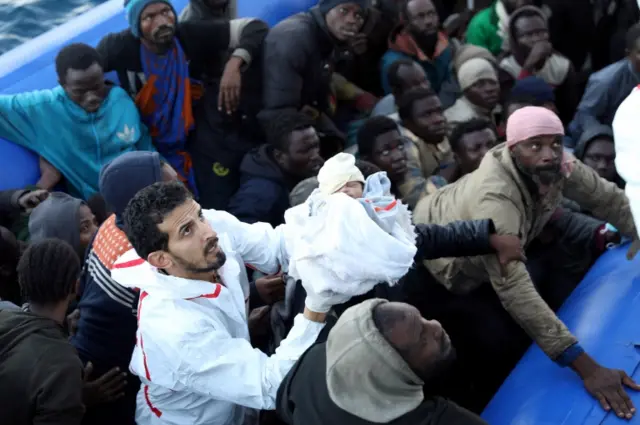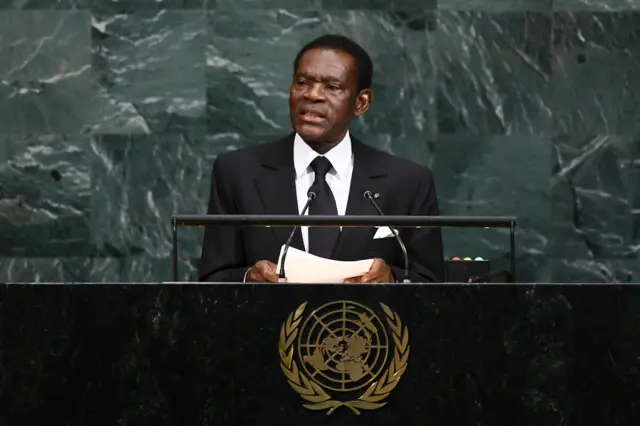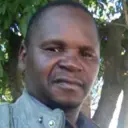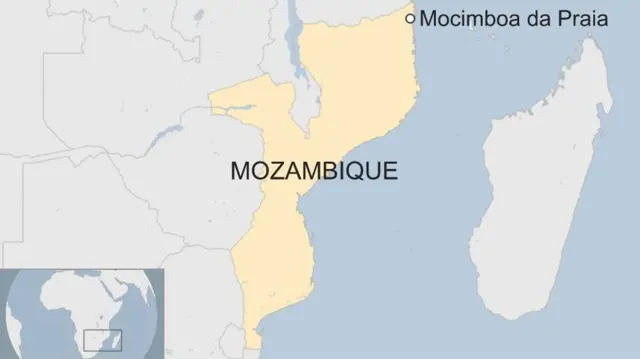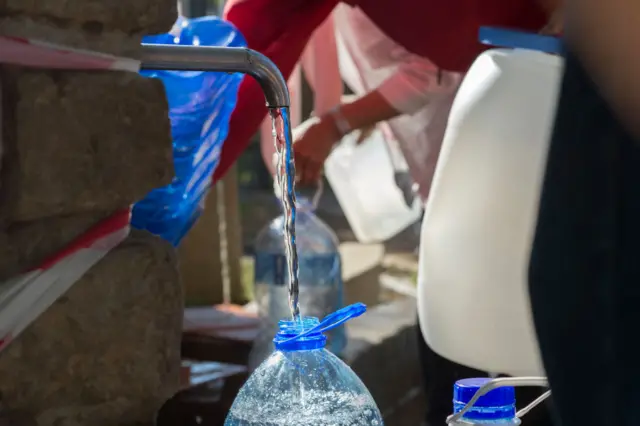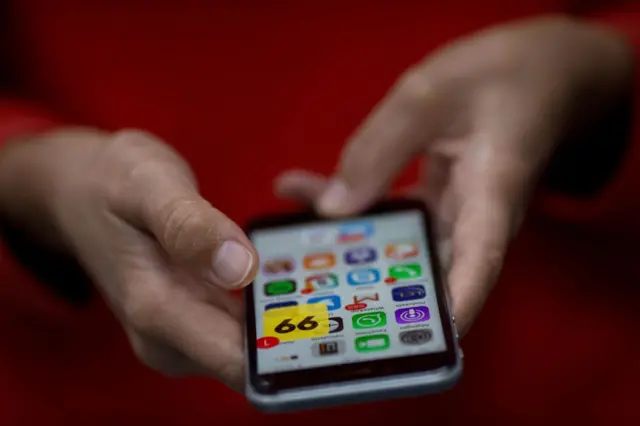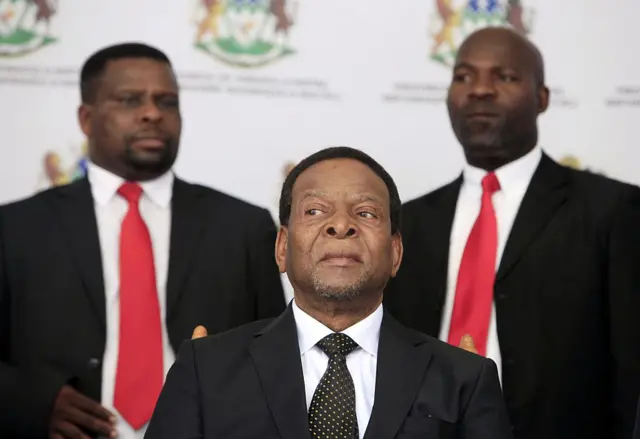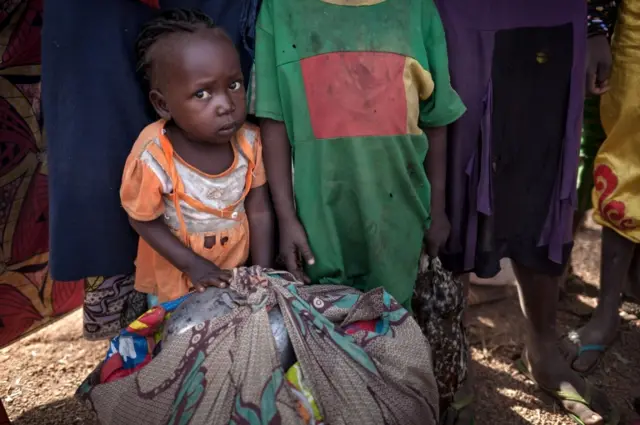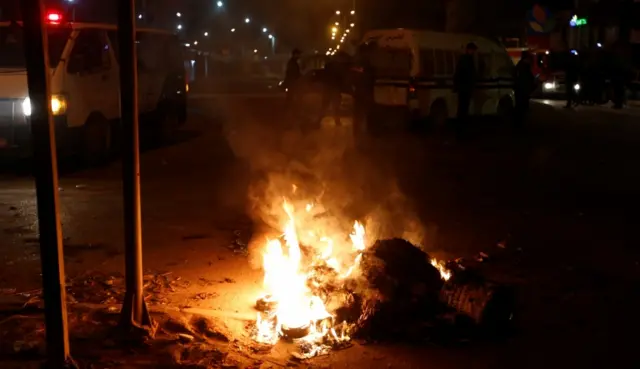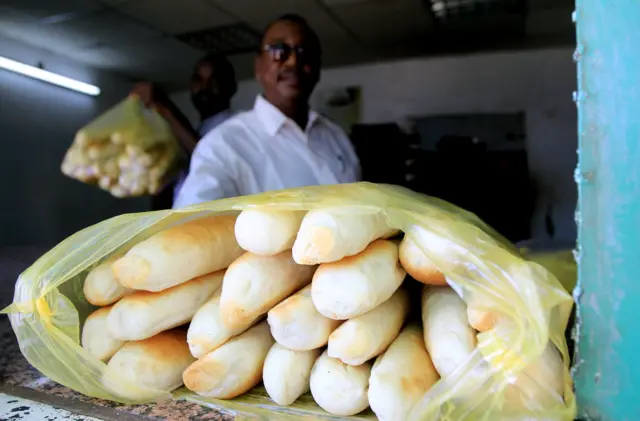Scroll down for Tuesday's storiespublished at 17:32 GMT 9 January 2018
We'll be back tomorrow
That's all from BBC Africa Live today. Keep up-to-date with what's happening across the continent by listening to the Africa Today podcast or checking the BBC News website.
A reminder of today's wise words:
Quote MessageDo not see a lion that has been rained on and think it is a cat."
A Swahili proverb from Kenya sent by Debi Ndindjock in Dallas, United States
Click here to send us your African proverbs.
And we leave you with this image taken in the Sahara desert, looking over a rather unusual scene:
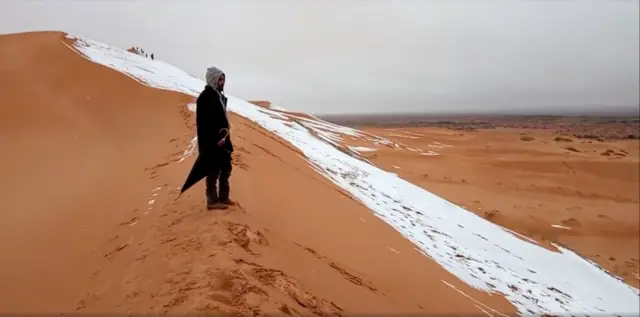 Image source, Reuters
Image source, Reuters